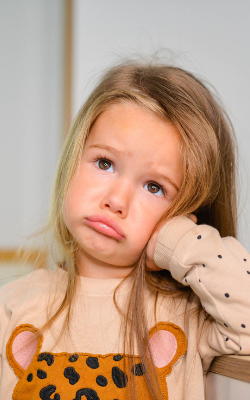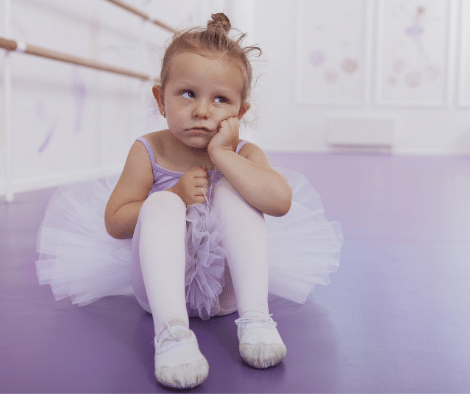1. Take a deep breath and also teach it to your kid. Try to let the child know that breathing deeply and slowly helps to relieve the burst of emotion and better understand the feelings. Adults often hide their anger behind a smiling "mask" and sometimes tend to condemn themselves for having these kinds of feelings. However, this does not mean that they do not exist. Coping with emotions, processing and acknowledging them, regardless of age, is very important. Taking a deep breath and slowing down is very helpful for understanding the source of these emotions. I wrote more about the issue of breathing in this article: 8 tips to deal with toddler tantrums.
2. Do not identify yourself by anger or your child's outrage. These feelings are a part of self-development and it is perfectly normal to experience them. The more you acknowledge these feelings, the more you will learn how to look them from another perspective and process these emotions. The ability to recognize your emotions from a different point teaches you how to deal with them and how to eventually remain calm in every situation.
3. A funny "black cloud" trick. Sometimes I can see how a child "sinks" into his or her own emotion and can't get out of there anymore. To my little daughter, who will soon be 5 years old, I’ve come up with a game: when she starts to get grumpy or angry, I say, “Listen, that black cloud came on you again. You're so cute and happy and cheerful little angel, but now a black cloud came on you that made you feel like this and it won't go away anymore”. Sometimes this helps and she acknowledges her emotions and realizes that this leg stomping is not necessary at all. At one point I told her to say to the black cloud, "Black cloud, I don't need you! I'm not interested in you, go away!” When she says that, she becomes brighter and more cheerful, she releases the emotion and calms down. Her identification through the emotion ends, she is not part of it anymore. This method works well in our family, although not 100% of the times. Besides, it already gives children the confidence, that they are able to manage and control something on their own. They feel that the "Black cloud" listened to the them ;)
4. Be there for your child when an anger outburst occurs. Anger is an emotion that everyone must be able to experience sometimes. It is totally okay. Repressed anger only builds up with time and creates new, even worse emotional outbursts. Being there for your child with every emotion they have is important for the child's sense of security - then they see and feel accepted even with negative emotions. You can give them a ball to throw hard or paper to wrinkle or tear. Let children feel their emotions – understanding and recognizing emotions help to release unwanted tension and prevents children from suppressing them. Anger needs to be felt and must be able to come out - after that it will be easier for everyone.
5. You can talk things through with a child about what triggered the outburst of anger. For an example, “Yes, you didn’t like the fact that a friend took the toy from you. You're now sad because you were the one who was playing with that. But you will definitely get it back soon.” This is how you formulate this experience for the child, and soon, when the crying begins to subside, the situation with the child can be discussed. Next time, they will be able to cope with a similar situation much better, as it has already been discussed and clarified with a parent. During life there’s going to be situations that they don’t really like - they need to understand it and learn that it’s okay. Definitely at one point they get the toy back or just exchange it with something. There’s always a solution.
6. Stop blaming yourself. Toddlers’ anger can be the sum of various events and experiences that have accumulated in them. Mothers are often embarrassed that a child behaves this way, but there is almost nothing to do about it. Suppressing a child's anger in a public place seems to be like a very polite act to do, but sometimes it’s simply necessary for the child to express the anger and negativity. Of course, you can always look inside of yourself and find out if it is actually you who is suppressing anger. Maybe the child is reflecting your actions with their behavior, and whether there are any possibilities to release or dissolve these hidden emotions. This can be the oppurtunity for both of you, where the healing from very strong outbursts of anger starts to happen...
7. Commanding, denying and using violence does not help! The more you ban, the more defiant the child becomes, and the situation gets worse. A few months ago, after reading an Estonian book called "Nukitsamees", a little song came to our family, which I sometimes hum: "Happy children, they grow up without a whipping...". If I asked from my almost 5 year old daughter, who has grown up surrounded with joy and happiness, does she even know, what a twig means, she answered innocently, “Hmm, a pumpkin?”. So yes, it is possible to raise your kid without them even knowing that those harsh “teaching” methods exist.
I hope this was helpful and you got a few tricks and tips on how to look at some situations from now on. I wish you and everyone brightness, joy and patience in dealing with emotions. And by the way ... you can always call angels for help or say what was once heard by an Estonian head of Government: "For Heaven’s Sake!" :D As you know, humor saves quite many situations.
Wishing you angelic brightness;
Karin Palm -
A mother of one little angel (I have one more angel, but he’s already a 17 year old young man :D)

